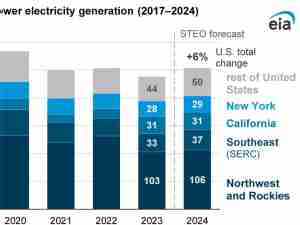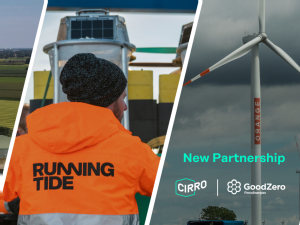- Hydrogen Vehicle Systems (HVS) is a new UK-based hydrogen vehicle emerging OEM and innovator in the heavy-duty commercial vehicle segment
- State-of-the-art technology offers up to 40 tonnes GVW, an industry-leading driving range of up to 370 miles (600 kilometers) –refueled in under 20 minutes
- HVS will reveal its HGV Articulated Tractor Unit, Technology Demonstrator, at the Commercial Vehicle show on the 18th of April. This vehicle features a unique powertrain and radical cab design, making it the first indigenous UK Hydrogen HGV, designed and built from the ground up
- The UK HGVs are the second largest contributors to UK transport emissions. They produce a disproportionate amount of road transport emissions. HGVs make up only 5% of total vehicle miles on the UK road network but contribute to around 18% of road transport carbon dioxide emissions. HGV transport miles and the number of vehicles continue to increase, so this emissions figure is likely to increase, without the introduction of viable Zero Emission alternatives

Zero-emission, long-range hydrogen-powered commercial vehicle innovator, Hydrogen Vehicle Systems (HVS), has today confirmed its state-of-the-art zero-emission hydrogen-electric Heavy Goods Vehicle (HGV) will have a range of up to 370 miles (depending on load and route) coupled with an industry-leading refueling time of just 15 – 20 minutes.
The eagerly anticipated HGV will be revealed at the Commercial Vehicle show on the 18th of April at the NEC in Birmingham, UK, where HVS will showcase its game-changing hydrogen powertrain in the form of an HGV Articulated Tractor Unit, Technology Demonstrator, fulfilling the company’s objective of being the first indigenous UK-designed and developed hydrogen-electric HGV on the market.
HVS CEO Jawad Khursheed said: “Thanks to the fresh thinking and ground-up approach, HVS has created an HGV that offers the complete package of game-changing technology and driver ergonomics. The state-of-the-art fuel cell stack coupled with the best in the industry hydrogen tanks ensures rapid refueling times and maximizes time on the road – delivering unrivaled Total Cost of Ownership to our customers”.
The state-of-the-art fuel cell stack
HVS’ vehicle powertrain employs a fuel cell system and energy storage system to deploy electricity to an electric motor to transmit power to the wheels. It uses a KERS (Kinetic Energy Recovery System) to recapture energy under braking and while the truck is slowing down.
The integrated powertrain is controlled with HVS' advanced control system ‘SEMAS’ which will deliver class-leading fuel efficiency and powertrain durability that contributes to achieving a total cost of ownership comparable to that of current diesel-powered offerings in the market.
The fuel cell permits longer range, higher load-carrying capacity, and faster refueling than would be possible using battery-electric technology alone.
The only emission from the vehicle in operation is water vapor, meaning there are no harmful greenhouse gas emissions of any kind.
Long ranges and quick fill-ups
It is in the heavy-duty long-range HGV segment that hydrogen fuel cells offer the greatest advantages. Depending on the payload, route traveled, road conditions, and driving style – HVS’ HGV has the capacity to cover up to 370 miles (600km).
Hydrogen-powered vehicles don't need charging like a battery-electric vehicle. They are fuelled with hydrogen gas, and stored at a pressure in hydrogen cylinders. Refueling takes a much shorter time than charging an equivalent battery vehicle and is comparable to filling a truck with diesel, at around 15-20 minutes to refill the hydrogen tanks. Much of the initial hydrogen fuelling demand will be undertaken using mobile dispensers located close to demand at existing commercial vehicle gas stations. These mobile dispensers look very similar to conventional petrol and diesel ones, but with an approved hydrogen self-locking safety nozzle.










